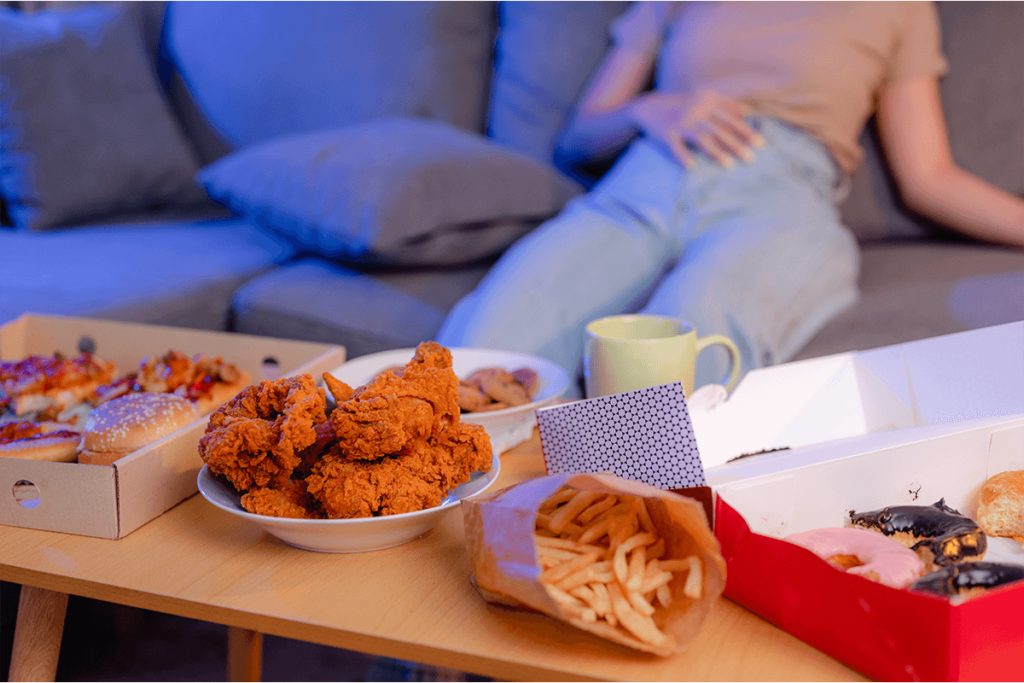
Even though nearly 10 percent of the US population will struggle with an eating disorder in their lifetimes, there are still many cultural and medical misconceptions about stress eating and restrictive eating that are causing more harm than good.
The providers at Orange County Health Psychologists, a group practice of mental health professionals, have seen the damage that eating disorders can do and how these myths can exacerbate the problem or prevent individuals who are suffering from seeking treatment. With that in mind, we will break down some common myths and share tips to manage these behaviors.
1. Someone like me can’t have an eating disorder.
One of the most pervasive myths about eating disorders is that they only happen to “SWAGs,” or Single, White, Affluent Girls. But in reality, anyone can use food as an emotional coping mechanism and fall into behaviors like restrictive or excessive eating.
In fact, multiple studies have found that gender and socioeconomic status aren’t a factor in eating-disordered behaviors. Further, these conditions often go underreported by individuals and groups who may think that they are not susceptible to disordered eating because they do not fit the stereotype.
Research on binge eating, for example, shows little difference in prevalence between genders. However, doctors who do family care are less likely to screen males for eating disorders – in part because of this myth.
2. Just because I like “comfort foods” doesn’t mean I have a disorder.
Strictly speaking, this is true! Everyone is entitled to have their preferences, including fast food and our favorite treats.
There are indicators beyond personal preferences or “cheat meals,” however, that can point to disordered behavior.
If you have a tendency to eat until you feel uncomfortably full or until you feel sick, that could be a sign of an unhealthy relationship with food. Similarly, emotional discomfort like feelings of guilt or shame after consuming food can also indicate a disordered relationship to eating, even if it doesn’t rise to the level of a clinical diagnosis.
Other indicators of disordered eating include an accelerated pace while eating, or consuming large amounts of food too quickly. Also, an emotional or irrational drive toward food that is hard to control or justify can be an indication of unhealthy food consumption.
3. My eating habits don’t affect my quality of life.
As mentioned above, an unhealthy relationship with food or disordered behaviors doesn’t always rise to the level of a clinical diagnosis. Challenges like restrictive eating or stress eating exist on a spectrum that ranges from mild to severe.
That said, tendencies or behaviors that don’t rise to the level of disordered eating can still contribute to an unhealthy lifestyle as well as short- or long-term health challenges.
“In my years of screening and working with patients, people are often surprised that there is a name for the ‘stress eating’ that they have experienced and normalized. And once they understand the behavior, they are usually happy to learn that they can do something about it.”
– Marinda Kurpius-Brock, M.Ed, LPCC
Finally, the idea that disordered eating behaviors do not affect someone’s quality of life is simply false. An unhealthy diet or restrictive eating habits can have a major impact on physical and mental well-being. There’s a tremendous body of research today that shows that unhealthy foods that contribute to inflammation can also contribute to depression, anxiety, brain fog, chronic pain, and many risk factors for disease and illness. And the reverse is true. When we eat enough of the foods that reduce inflammation, we feel and function better in the world.
OC Health Psychologists’ 4 Tips to Manage Eating Disorders
If you are aware of eating-disordered tendencies in your own life, there are a few tactics worth trying that can help you improve and restore your relationship with food.
1. Don’t be restrictive with food.
Being hungry dramatically increases the likelihood of a stress-eating or binge-eating incident. If you can mindfully prevent those feelings from occurring, you should have an easier time avoiding negative behavior like overeating or eating too quickly.
2. Eat regular meals.
Skipping one or more meals will inevitably trigger hunger, which you want to avoid. If stress eating is the challenge you are trying to overcome, eat healthy and filling meals at mealtime and stay hydrated throughout the day.
3. Don’t stock up on trigger foods.
If a specific food like pizza or ice cream is your “go-to” for stress eating or binge eating episodes, make a conscious decision to remove them from your home. Creating hurdles and an awareness of your access to these foods can help reduce those destructive impulses.
4. Speak with a professional.
If you are struggling with stress eating, restrictive eating, or poor impulse control related to food, a mental health professional who specializes in eating-disordered behaviors can provide the support and tools you need to move beyond these challenges.
In conclusion, it’s important to remember that many negative behaviors related to eating go unrecognized or underreported because of a lack of understanding. Learning to identify warning signs related to eating and knowing that treatment options are available can reduce health risks and even save lives.

